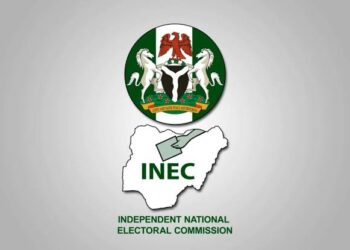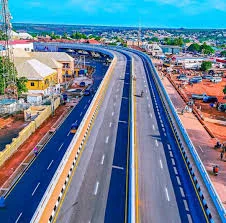The comptroller general of the Nigeria Customs Service (NCS), Bashir Adewale Adeniyi, has disclosed that the Service intercepted 21 vehicles worth several billions of naira stolen from Canada.
The customs boss also displayed arms and ammunition intercepted inside a commercial bus coming from Aba in Abia State to Lagos.
NATIONAL ECONOMY reports that the vehicles stolen are three 2021 Toyota Highlander vehicles; one Mercedes-Benz G550; Range Rover Sport; One Mercedes-AMG GT with Lamborghini Huracan; one Rolls Royce; Lamborghini 2019 Model; two Range Rovers (2023 & 2018 Models; 3 Toyota Highlander 2021 Models, among others.
However, addressing newsmen during the handing over of the seized vehicles, the customs CG who revealed that West Africa has emerged as a notable destination hub in the global stolen vehicle trade network, revealed that the vehicles were Intercepted in Lekki, Tin-Can Island and Onne Port, Rivers State.
According to him, the network extends from Europe and North America to as far as South America and Australia.
“Over the past several months, we have intensified our operations against vehicle trafficking syndicates operating within our borders. According to INTERPOL reports, West Africa has emerged as a notable destination hub in the global stolen vehicle trade network, which extends from Europe and North America to as far as South America and Australia.
“This challenge is particularly acute in Nigeria – National Bureau of Statistics(NBS) data showed that between 2013-2015, only 54 per cent of stolen vehicles were recovered, highlighting the scale and sophistication of this criminal enterprise.
“The growing incidence of stolen vehicles finding their way into our region has become a matter of serious concern, as it not only undermines our legitimate automotive market but also strains our security infrastructure,” he stressed.
The customs boss, however, stated that beyond damaging the nation’s legitimate automotive trade sector and international business relationships, it undermines President Tinubu’s economic reform agenda that aims to position Nigeria as a trusted hub for international commerce.
He also stated that, the customs is also forced to divert substantial resources towards enhanced border management and rigorous verification processes that should be channelled towards trade facilitation initiatives and economic growth programmes.
“Recent intelligence from international law enforcement agencies further confirms that our region has become a preferred destination for internationally stolen vehicles, a trend that not only tarnishes Nigeria’s international image but also impacts our economy through substantial revenue losses and increased security spending.
“The economic implications of this criminal enterprise are far-reaching and deeply concerning. Beyond damaging our legitimate automotive trade sector and international business relationships, it undermines President Tinubu’s economic reform agenda that aims to position Nigeria as a trusted hub for international commerce.
“The Service is forced to divert substantial resources towards enhanced border management and rigorous verification processes – resources that should ideally be channelled towards trade facilitation initiatives and economic growth programmes. This criminal activity not only strains our operational capacity but also threatens the government’s efforts to attract foreign investment and establish Nigeria as a reliable partner in global trade.
“In response to these challenges, the Nigeria Customs Service initiated Operation Hot Wheels, a targeted enforcement initiative aimed at disrupting the flow of stolen vehicles into Nigeria through our ports and borders.
“Launched as a collaborative effort between the Nigeria Customs Service, the Economic and Financial Crimes Commission (EFCC), and Canadian authorities, the operation focused on intelligence sharing, coordinated surveillance, and strategic
interdiction. The operation’s primary objectives included identifying and intercepting stolen vehicles, dismantling trafficking networks, and strengthening international cooperation in combating transnational vehicle theft.





